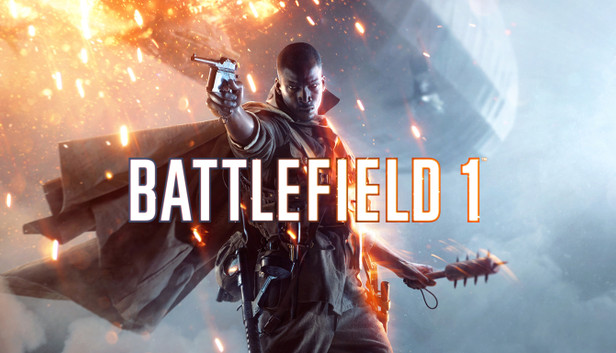Battlefield 1 takes players back to the brutal conflicts of World War I, offering intense multiplayer action. Many gamers want to team up with friends across different gaming systems. This has led to questions about whether the game supports cross-platform play.
Battlefield 1 does not have cross-platform support. Players on PC, PlayStation, and Xbox cannot play together in the same matches. This limits the game’s community, as friends on different platforms can’t join forces in the trenches.
Cross-platform gaming has become more common in recent years. It allows players to enjoy games with a wider group of people, no matter what system they use. While Battlefield 1 misses out on this feature, newer games in the series have started to include it. This shows how important cross-play has become for multiplayer shooters.
Is Battlefield 1 Cross-Platform?
Battlefield 1 doesn’t support cross-platform play. Gamers on different systems can’t team up or battle each other. This means PC players can’t join matches with console users.
The game came out in 2016 when cross-play wasn’t as common. Technical limits and platform rules made it tricky to add this feature.
There’s a small bright spot for PC gamers. If you bought the game on Steam or Origin, you can play together. But that’s as far as the sharing goes.
Many fans wish they could play with friends on other systems. It would be great to team up no matter what console or computer you have. Sadly, that’s not possible in Battlefield 1.
For now, you’ll need to stick to playing with others on the same system as you. It’s a bummer, but the game is still fun with its epic battles and historical setting.
Can PlayStation and Xbox Players Play Together in Battlefield 1?
Sadly, PlayStation and Xbox players can’t team up in Battlefield 1. The game doesn’t support cross-play between these consoles.
This means PS4 gamers can only play with other PS4 users. Xbox One players are limited to battling alongside fellow Xbox One owners.
It’s a bummer for friends who own different consoles. They can’t join forces to take on the epic World War I battles together.
The lack of cross-console play affects both multiplayer matches and co-op missions. Players are stuck in separate console ecosystems.
Some gamers hoped this might change over time. But even in 2024, Battlefield 1 remains divided by platform.
Here’s a quick breakdown of who can play with whom:
- PS4 ↔️ PS4
- Xbox One ↔️ Xbox One
- PC ↔️ PC
While it’s disappointing, there are still plenty of players on each platform to enjoy the game with. The battlefields remain active and exciting, even if they’re not shared across all consoles.
Cross-Play Between PC and Consoles: Is It Available?
Battlefield 1 fans often wonder if they can play with friends on different systems. Sadly, the game doesn’t support cross-play between PC and consoles. PC gamers can’t join matches with Xbox or PlayStation players.
This means PC players are limited to battling it out with other PC gamers. Console owners can only face off against others on the same platform. It’s a bummer for groups of friends who use different systems.
There is a tiny bright spot for PC players, though. Battlefield 1 does allow cross-play between Steam and Origin on PC. So at least PC gamers have some flexibility in how they access the game.
For those craving cross-platform action, newer Battlefield titles offer more options. Battlefield 2042, for example, lets PC, PS5, and Xbox Series X/S players join forces. But Battlefield 1 remains stuck in the past when it comes to cross-play.
Why Battlefield 1 May Not Be Fully Cross-Platform
Battlefield 1 fans have been wondering why they can’t play with friends on different systems. There are a few reasons for this.
DICE, the game’s developer, used different game engines for each platform. This makes it tough to sync up gameplay across systems.
The game came out in 2016 when cross-play wasn’t as common. Adding it now would be a big job for the developers.
Each gaming platform has its own rules and systems. Getting them all to work together smoothly is tricky.
Network issues can cause problems too. Players on different systems might have varying connection speeds or lag times.
There are also business reasons. EA, the publisher, might not see enough benefit in adding cross-play to an older game.
Keeping the game fair is another challenge. PC players with keyboards and mice might have an advantage over console players.
Licensing deals between EA and platform owners could also limit cross-play options.
Conclusion
Battlefield 1 doesn’t have cross-platform play. This means players can’t team up with friends on different systems. Xbox One and Windows PC users can play together. But PlayStation 4 players are on their own servers. This splits up the player base.
EA hasn’t added cross-play to Battlefield 1. They likely won’t in the future. The game came out in 2016, so big changes are unlikely now.
For multiplayer fun, gamers need to stick to their own platform. But there are still lots of players on each system. Finding matches isn’t hard.
Players who want to game with friends should check which platform they use. Buying the game for the same system is the best way to play together.
Battlefield 1 still offers great World War I action. The lack of cross-play doesn’t stop it from being fun. There’s a mix of modes for solo and team play.
The multiplayer community remains active across all platforms. New players can jump in and find battles easily. Just remember to pick the right version for your gaming circle.


0 Comments